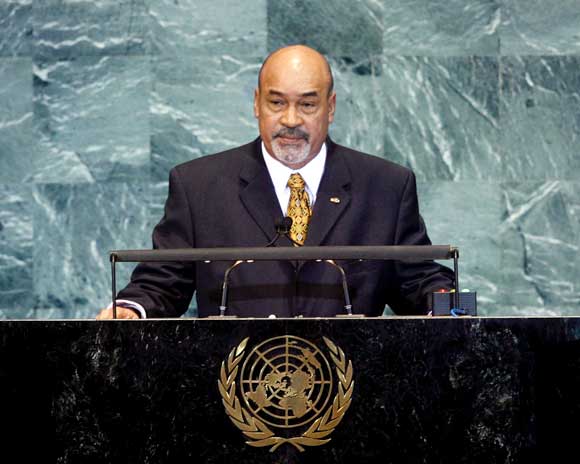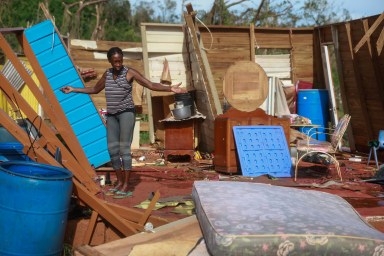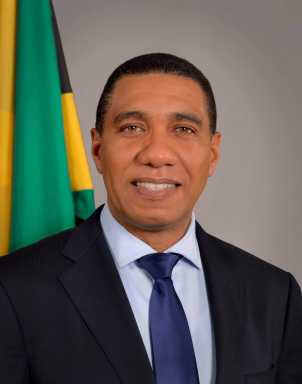Listeners:
Top listeners:
-
play_arrow
RadioJLR Just Press Play
The coordinated efforts by Caribbean Community leaders to help install an interim government in trouble-prone Haiti, the battering the region took from increasingly powerful storms like Beryl in early July, mounting concerns about crates filled with high powered weapons from the US making it to the region and the tabling of legislation to make Jamaica a republic will likely rank as some of the major events of 2024.
Until Superstorm Beryl became the earliest ever to have formed and come ashore in Grenada just about a month after the 2024 storm season had begun, the regional effort to stabilize Haiti had perhaps been one of the biggest of the political stories of the year, if not the most important. After all, the region’s most populous country had no elected president because Jovenel Moise had been assassinated by entrenched interests back in mid-2021, elected terms for parliamentarians, mayors and other constitutional offices had expired because there had been no general elections in nearly seven years and heavily armed gangs had begun to take over the capital stifling daily life almost completely.
Worried that an unstable Haiti could affected the wider 15-nation CARICOM bloc, the grouping with help from the US, western nations and friendlies like Brazil and Mexico, bandied together at an emergency summit in Jamaica in March where they forged agreement with a multiplicity of Haitian stakeholders to establish an interim government that would organize fresh elections by early 2026, lay the groundwork for an international peacekeeping force and generally work to stabilize the country.

And even though the US pushed Kenya into agreeing to lead the peace keeping force with around 1,000 police officers, the reality on the ground is that it barely has 400 men and only a fraction of the $700 million needed annually to keep such a force in place has not been provided to officials even as gangs continue to make gains in the capital and related areas. The fragile transitional administration has complained bitterly about being virtually abandoned by traditional donors.
Ulrika Richardson, the UN’s resident coordinator in Haiti, said recently that “there has been a terrifying escalation of violence in certain parts of Haiti, which is tearing at the very fabric of society. There have been horrific massacres in the last three months of the year. These brutal acts of dehumanization will only deepen the collective trauma of the Haitian people,” Richardson said. “We cannot ignore this reality. We must center these horrific events in our response, urgently expanding mental health and psychosocial support programs. As the UN, we are committed to staying in Haiti to help the most vulnerable people through the current crisis,” she told reporters.
As the struggle for stability continues in Haiti, nations like Grenadian federation with Petit Martinique and Carriacou, Barbados, St. Vincent and Jamaica suffered severe damage from Beryl as the storm broke all records by becoming a category five at the end of June, making it the earliest ever superstorm on record, experts stated. Regional neighbors rallied around Grenada which had been spared a hit since Ivan in 2004, donating supplies and rushing its construction and other personnel. They also rushed utility workers to Jamaica to help restore power even as authorities there as well as in the other affected nations complained about the hundreds of millions in damage to crops, fishing vessels and property.
As Caribbean nationals monitored the weather, the Jamaica government tabled the first major piece of legislation to make the island a republic like Guyana, Trinidad, Dominica and Barbados but trouble appears to lie ahead as the major opposition party says it won’t support the bill until and unless the British Privy Council is kicked out as Jamaica’s final court in favor of the Trinidad-based Caribbean Court of Justice (CCJ).
Other notable events include the return of the iconic Antigua-based LIAT 2020 limited to the skies of the Caribbean, grounded by the Covid 19 pandemic, high operating costs and lukewarm financial support for regional governments among other problems. While LIAT was preparing for takeoff at mid-year, authorities in Trinidad, The Bahamas, Jamaica, St. Lucia, Suriname and Barbados among others were complaining about rising violent crime, especially via the use of high powered handguns and rifles. MOUs were signed with the US to help stop the flow from American cities but the situation became so bad in Trinidad in late December that the Rowley administration there said it was forced to declare a state of emergency to curb gang violence, extortions, arson attacks, home invasions and other crimes for at least three months.

In nearby Suriname, there was political drama of an unexpected kind when the lifeless body of former military strongman and ex-president Desi Bouterse mysteriously turned up at his city home for viewing by loved ones, nearly a year after he had gone into hiding to escape a 20-year sentence for mass murders of political opponents in 1982. His death from an abused liver because of chronic alcohol use, has sparked a major investigation as to how the body ended up at a home that was heavily monitored by police. He is expected to be cremated shortly. Other notable deaths include Antiguan lawmaker Asot Michael who was murdered at home, former Trinidadian prime minister Basdeo Panday in early January, and Trinidadian cabinet minister Lisa Morris Julian who was burned to death in her home along with two of her children just recently.

Meanwhile, the Eastern Caribbean nations of St. Lucia, Dominica and Grenada are still basking in glory following major successes at the Paris Summit Olympics. Sprinter Julien Alfred surprised the globe by winning the 100-meter women’s sprint and nabbed a silver in the 200 meter, while Dominican Thea LaFond earned a gold for her nation in the triple jump. For both St. Lucia and Dominica, this was the very first time that they had won gold medals on the most major world athletic stage of them all. Not to be outdone, of course, was Grenada by way of Lindon Victor who won a bronze in the decathlon. Counterpart Anderson Peters picked up Grenada’s second medal at the 2024 games in Paris in the javelin. All three governments handsomely rewarded their athletes with cash, property and other prizes.
Similar posts
© 2025. All Rights Reserved by Radio-JLR




Post comments (0)